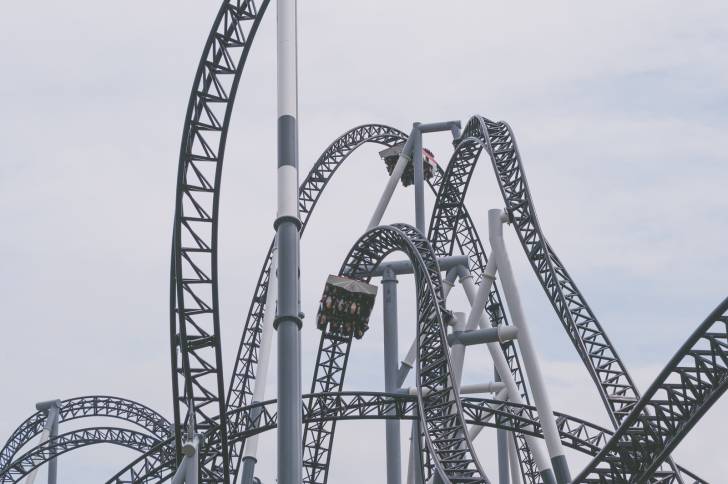by Mawer Investment Management, via The Art of Boring Blog
It was a bright, blue morning on Alta Lake. I sat in the grass as a handful of athletes prepared for the Whistler Ironman nearby. The sun was shining, its rays warming my face as I thought about death.
I was reading When Breath Becomes Air1, the memoir of Paul Kalanithi, a talented neurosurgeon who, at the age of thirty six and on the verge of completing a decade’s worth of training, was diagnosed with Stage IV lung cancer. The book chronicles the life of a man who pursued the vocation of doctor in order to answer the question “What makes life worth living?”, only to find himself party to an ironic twist of fate, with doctor becoming patient and wrestling with his own mortality.
A book about death might seem like an odd choice for a sunny summer day, but I found it uplifting. In my serene setting, the doctor’s story moved me and made me that much more appreciative of my surroundings. And it got me thinking on the curious reticence with which so many of us approach the downside in our lives.
There is a Latin phrase “memento mori” which means “to remember death”. It is a perspective that dates back several thousands of years to the Roman Empire, when stoicism dominated philosophical thought. Essentially, the stoics argued that there is great benefit to be found in the routine and deliberate practice of remembering that we are all going to die.
For investors, the consideration of the downside is an essential component to the investment decision. We must consider not only our expected scenario – which is often also an optimistic one – but the many possible ways in which we could lose our shirts. This reflection is necessary because a rational decision relies on taking into consideration the full spectrum of probabilities for an investment, not just what you would like to happen. The most skilled investors engage in this kind of thinking all the time. Whether you look at someone like Marc Andreesen, Seth Klarman, Richard Branson or Warren Buffett, you will find that they all engage in this kind of reflection regularly. Indeed, our team has observed at least one commonality among both successful businessmen and investors: an obsession with protecting the downside. The best managers we’ve seen are very skilled in this area.
In fact, our team finds memento mori so important that we systematically include it in our process. For every investment decision we make, we spend time fully fleshing out what the “short thesis” would be – i.e. how could this investment break? What would need to be true for this stock to go to zero? We consider what assumptions underlie our main thesis and then what might happen if those assumptions fell apart. We do this in our individual stock reports, as well as on a more macro level, through our routine risk review process which considers bigger picture themes.
Yet even when we know we should consider the downside, it would seem that many of us struggle to give enough weight to this thinking. This may be due to optimism, overconfidence, or perhaps just avoidance of the unpleasant. After all, it is much nicer to fantasize about how we might all one day be billionaires than it is to think about the ways in which a new stock idea could be a total disaster. It is easier to pretend that this type of scenario will never occur. But reflect on the downside we must, at least if we want healthy investment portfolios.
But here’s the thing: this practice isn’t nearly as negative as one might think. As one realizes while reading Kalanithi’s memoir, memento mori can be a positive experience. Reflecting on death need not be unpleasant, even if some elements can be terrifying. It can be freeing. This is true for investing and in our lives.
In investing, thoroughly reflecting on the downside reduces anxiety. If an investment can be attractive under any number of scenarios, then there is less need (and less stress) for any one scenario to play out. Accurately predicting the future becomes less important when your investment should still work under many different future scenarios. Moreover, when you have mentally prepared yourself for the worst case scenario to occur, in the improbable moment when it does, you are more emotionally ready to direct a logical response. You will be better off than someone who needed the world to turn out a certain way. It is a more resilient path.
In life, there is much to be gained by remembering we will die. The stoics were on to something when they advocated for frequently recalling your mortality. To remember that life is short and finite is to realize that time is scarce and thus precious. As Steve Jobs once said in his commence address to Stanford:
“Remembering that I’ll be dead soon is the most important tool I’ve ever encountered to help me make the big choices in life. Because almost everything – all external expectations, all pride, all fear of embarrassment or failure – these things just fall away in the face of death, leaving only what is truly important. Remembering that you are going to die is the best way I know to avoid the trap of thinking you have something to lose. You are already naked. There is no reason not to follow your heart.”
It’s a freeing thought.
- Kalanithi, Paul. When Breath Becomes Air. Random House, New York: 2016.
This post was originally published at Mawer Investment Management














